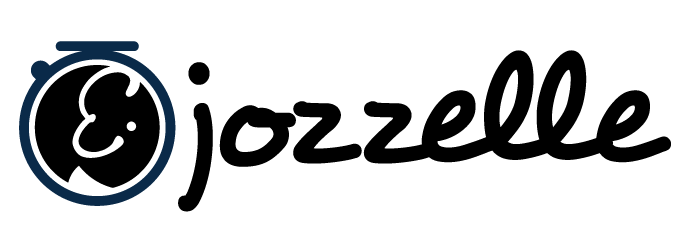
Have you used images, music or videos off the internet without checking if they’re okay to use under copyright laws? I’m sure most people have at some point, including myself growing up: download a small image for an assignment here, rip a song off YouTube there. It was too easy— but it could get you into trouble with whoever owns their copyright.
Most of us never have to worry about the consequences of copyright infringement. It’s not like most of us are posting self-made videos with Pokémon or Super Mario music on YouTube. If you are, Nintendo’s pretty notorious for hunting copyright infringers so maybe it’s time to rethink that “Me and Pikachu bae” music video you just posted.
(“Me and Pikachu bae” actually sounds like the cutest music video. I’d insert a sample of what that might look and sound like here, but it’d be an infringement and I may end up on Nintendo’s hitlist.)
As a design studio, E. Studios also has an obligation to take copyright seriously. It’s designed to protect our work, your work, and the work of fellow creatives.
What is Copyright?
Copyright legally protects a creator’s work. In the creative field, if a person creates an original piece of art, a song, a video, or maybe a graphic print, they own the copyright to this work. This ownership of copyright means the creator has the exclusive right to use, reproduce or publish their work.
After all, they made it. If you’d sweated over a cute illustration, you’d want to give your consent before someone else uses it on the office mugs they’re about to sell on Etsy. You might even want to take a cut on the unlikely chance they start to profit off it.
As with all things legal, it can get more complicated than this, and you can always check the legislation that governs it in Australia (see the Copyright Act 1968). To make it easier for you, we’ve summarised some of its key elements:
- In Australia, copyright is automatic. You don’t register it. Copyright is given the moment you express an original work.
- Copyright only protects actual “expressions” of work. It doesn’t protect ideas. It’s the difference between a screenplay someone actually wrote (“expressed”) versus the plot idea you thought would be cool and could sell to Marvel, but didn’t write.
- You don’t get exemptions to infringe on someone’s copyright just because you’re not making a buck out of their work. You do, however, have exemptions to use copyrighted work under Fair Dealing exceptions.
- Creativity comes from somewhere: an influence, a fusion of ideas, a reinvention. If you’ve adapted, modified or referenced a work and made something completely new out of it, you have copyright to this new work… assuming it’s an original. Originality is a grey area and can sometimes end up in court, but in Australia, the threshold for originality is low.
- Just because it’s online, doesn’t mean it’s free for all. Copyright applies online just as it does in our physical world. If you’re tempted to download a stock image for your next hot take on a meme: purchase a license first to use it, or get permission from the copyright owner. If it’s already on a free license like Creative Commons, make sure you know what you’re allowed to do with the work before using it.
Who Owns a Copyright?
Sometimes a creator might sign away any copyrights to their boss (which is pretty common for creative employees or contractors). Sometimes, a creator might pass their copyright to someone else (which is what E. Studios does once you’ve paid us for the work we’ve created for you). Sometimes, creators might collaborate and create a ‘Frankenstein’ of copyrights.
Hear me out, a Frankenstein is not that weird or uncommon. In “Me and Pikachu bae” for example: Nintendo would own the Pikachu who stars and dances in the video; Travis Scott would compose and perform the music (and his label would own the music); Ryan Reynolds would own the short, comedic screenplay he wrote specifically for my video; and I would own any copyright to the music video I filmed, edited and produced as an L.A. videographer in this improbable universe.
Copyright works exactly the same when we collaborate with you. Some clients may worry that if they hand over their digital assets to us, we suddenly own the copyright to it. This isn’t true. All these assets stay as yours (or whoever owns their copyright), even if we use it. That’s why in our Terms of Service, we have to ask you for permission to use the assets. It’s your copyright.
If we use those assets to create work you’ve paid us to make, we may have copyright to the resulting work on the basis of originality. This is why in our Terms of Service, we pass our copyright on any final works to you once you’ve paid in full.
What Are the Consequences?
Infringing copyright can have costly legal poo-poos for us, so we’d love it if you cooperated with us on the legalities. Some common things we ask you to do:
- Please send us copyrighted works directly so we know you, or the copyright owner, have given us permission to use it (see Section 4.3 of our Terms of Service). Don’t ask us to rip images, music, or videos from Google Images, YouTube or other platforms online. If you do ask us, we will always say no.
- If you want to purchase a copyrighted image, song or other work for your deliverable, it’s best if you purchase and own the license yourself as it’ll end up on your final product. Otherwise, we’ll own the license to something on your final product.
- If you have any concerns or want to discuss copyright over works, please do talk to us. We’d rather get it right than end up with a legal issue.
Useful Resources
Further reading, if you want to learn more about copyright in Australia.
